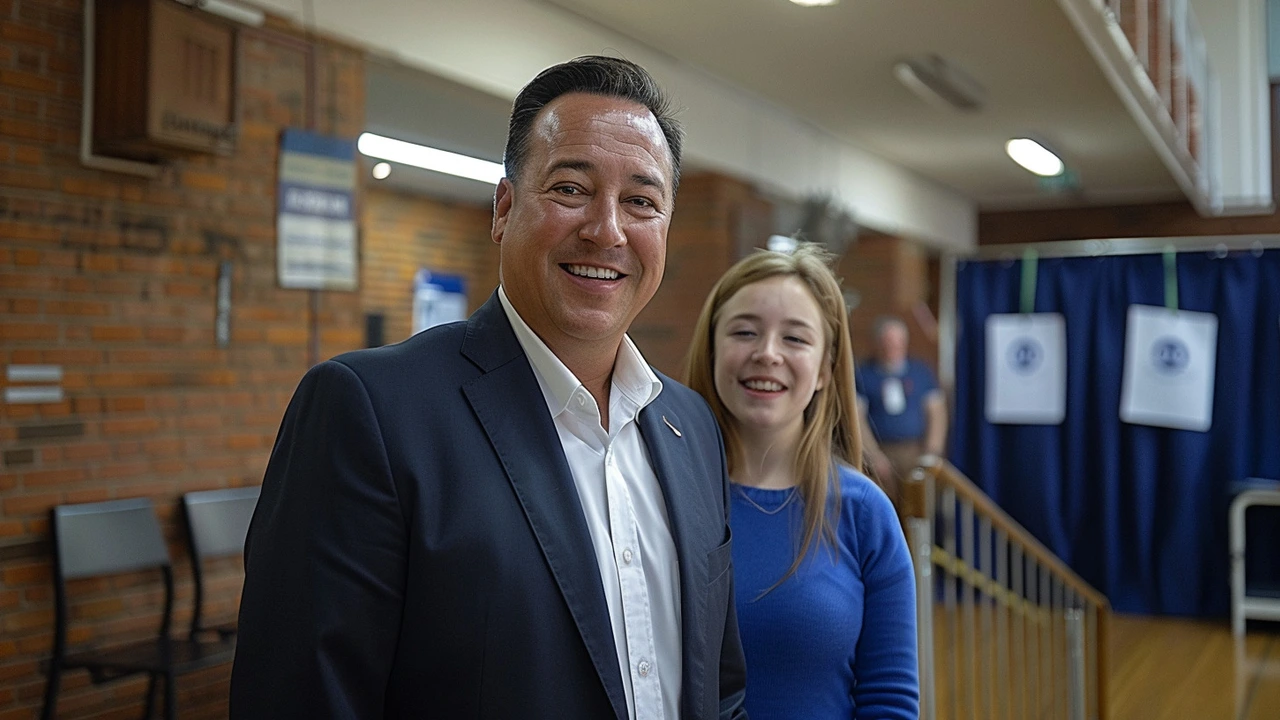John Steenhuisen Predicts Major Wins for Opposition in Key South African Provinces
The political landscape in South Africa is gearing up for significant shifts as John Steenhuisen, the leader of the Democratic Alliance (DA), expresses unwavering confidence in the opposition parties' potential to dominate in key provinces, particularly KwaZulu-Natal (KZN) and Gauteng. In his recent statements following his vote at Northwood High School in Durban, Steenhuisen highlighted critical insights into the electoral dynamics of these regions and beyond.
KwaZulu-Natal as a Battleground
KZN, known for its vibrant political activity, is poised to become one of the most crucial battlegrounds in the upcoming election. Steenhuisen is banking on the significant transformation of voter preferences in this region, attributing the shift to the presence of new political forces like the uMkhonto weSizwe Party, which seems to be eroding the African National Congress (ANC) support base. This shift presents a golden opportunity for opposition parties to come together and form a majority, potentially altering the political equation of the province.
Challenges for the ANC
Steenhuisen's predictions aren't limited to KZN alone. He believes the ANC is on shaky ground in the Free State as well. Traditionally an ANC stronghold, the Free State has been plagued by controversies and growing discontent among its residents. Steenhuisen pointed out that voters in this region are more receptive now to alternative parties, hinting at significant losses for the ruling party. Disillusionment with the ANC's performance has created an opening for opposition parties to appeal to the electorate with promises of better service delivery and governance.
Retaining Control in the Western Cape
In contrast to his projections for the ANC in KZN and the Free State, Steenhuisen remains confident about the DA's hold on the Western Cape. Despite analysts speculating potential challenges for the DA in this region, Steenhuisen believes his party will retain its governance and perhaps even strengthen its support base. The Western Cape has been a showcase for the DA's administration, boasting improved public services and infrastructure, which Steenhuisen hopes will convince voters to maintain their trust in the party.
The Role of Coalitions
Recognizing the complexity of South Africa's political landscape, especially with a fractured vote, Steenhuisen emphasizes the importance of forming coalitions. The DA's leader is not just banking on his party's strengths but is also open to partnerships with other parties beyond the existing Multi-Party Charter. The aim is a collaborative approach to governance, where multiple opposition entities come together to deliver on promises of better service and accountability. Such coalitions, according to Steenhuisen, are crucial for establishing an alternative government that effectively addresses the needs of the people.
The Importance of Voter Engagement
Steenhuisen's comments underscore a broader strategy that opposition parties are likely to adopt leading up to the elections – direct voter engagement. By highlighting discontent with the current regime and presenting clear, actionable plans for improvement, opposition parties can galvanize support from a disillusioned electorate. KZN, with its large, diverse population, represents a microcosm of national sentiments, making it an essential focus for campaign efforts.
Implications for Future Governance
The shifts Steenhuisen predicts could have far-reaching implications for South Africa's future governance. A move towards coalition governments could mean more balanced and representative decision-making processes. However, it also requires a willingness among opposition parties to compromise and collaborate, prioritizing national interests over individual party agendas.
A New Dawn for South African Politics?
Steenhuisen's confidence paints a picture of potential change at the provincial and national levels. Whether this optimism translates into actual electoral victories remains to be seen. As the election season heats up, all eyes will be on KZN and other key regions to see if the tides of change are indeed turning. The evolving political narrative promises a dynamic and closely watched election, with the potential to reshape South Africa's political landscape significantly.
In conclusion, the narrative put forth by Steenhuisen reflects a pivotal moment in South Africa's democratic journey. The potential for opposition parties to make substantial inroads in traditionally ANC-dominated territories signals a more competitive and vibrant political atmosphere. As election campaigns ramp up and parties vie for the support of a discerning electorate, the stage is set for a historic contest that could redefine governance in the region.









Write a comment